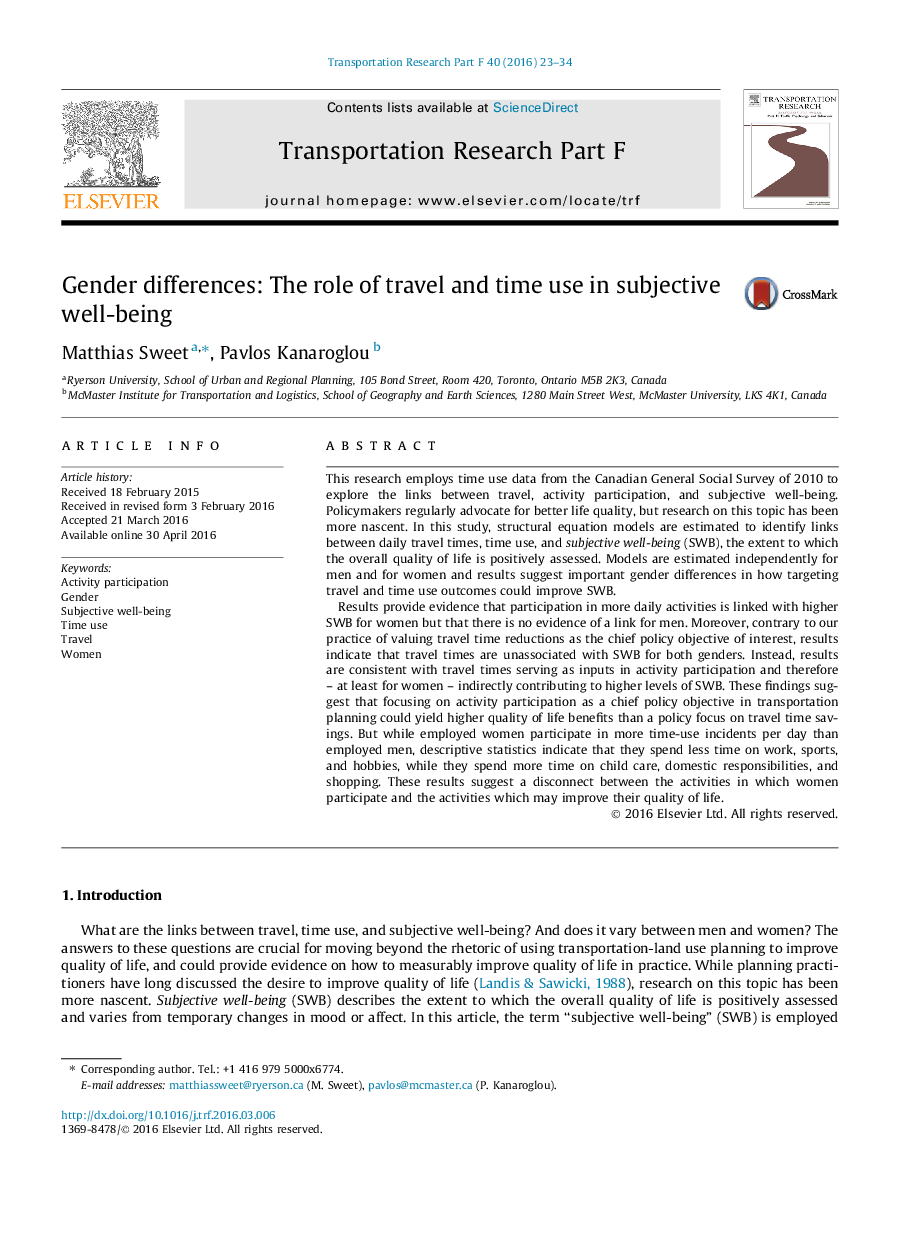| کد مقاله | کد نشریه | سال انتشار | مقاله انگلیسی | نسخه تمام متن |
|---|---|---|---|---|
| 897597 | 1472443 | 2016 | 12 صفحه PDF | دانلود رایگان |
• This study explores the links between travel, time use, and subjective well-being.
• Gender differences in subjective well-being are estimated for employed Canadians.
• Results indicate benefits from focusing on accessibility instead of time savings.
• Results indicate that travel times are unassociated with SWB among men and women.
• Findings imply significant quality of life benefits for women from more activity participation.
This research employs time use data from the Canadian General Social Survey of 2010 to explore the links between travel, activity participation, and subjective well-being. Policymakers regularly advocate for better life quality, but research on this topic has been more nascent. In this study, structural equation models are estimated to identify links between daily travel times, time use, and subjective well-being (SWB), the extent to which the overall quality of life is positively assessed. Models are estimated independently for men and for women and results suggest important gender differences in how targeting travel and time use outcomes could improve SWB.Results provide evidence that participation in more daily activities is linked with higher SWB for women but that there is no evidence of a link for men. Moreover, contrary to our practice of valuing travel time reductions as the chief policy objective of interest, results indicate that travel times are unassociated with SWB for both genders. Instead, results are consistent with travel times serving as inputs in activity participation and therefore – at least for women – indirectly contributing to higher levels of SWB. These findings suggest that focusing on activity participation as a chief policy objective in transportation planning could yield higher quality of life benefits than a policy focus on travel time savings. But while employed women participate in more time-use incidents per day than employed men, descriptive statistics indicate that they spend less time on work, sports, and hobbies, while they spend more time on child care, domestic responsibilities, and shopping. These results suggest a disconnect between the activities in which women participate and the activities which may improve their quality of life.
Journal: Transportation Research Part F: Traffic Psychology and Behaviour - Volume 40, July 2016, Pages 23–34
